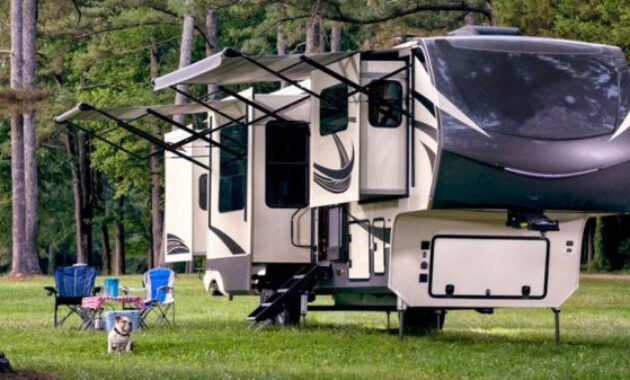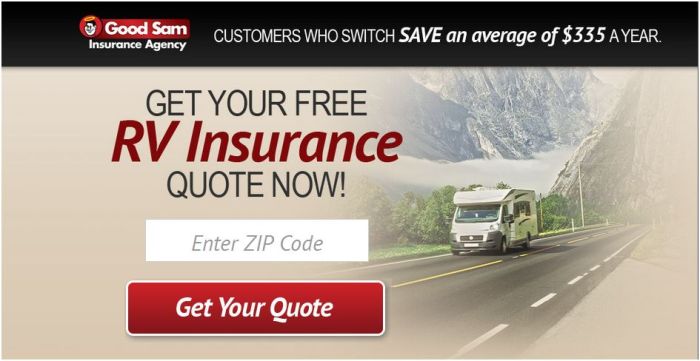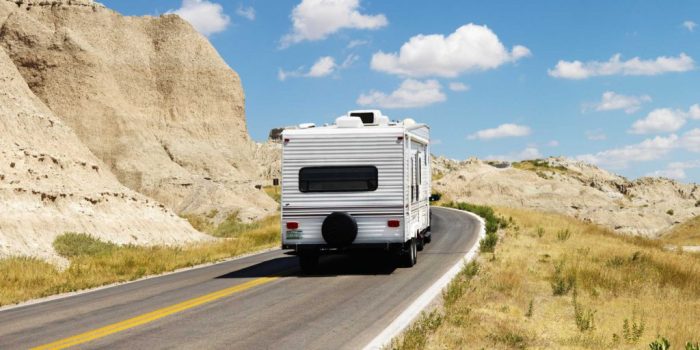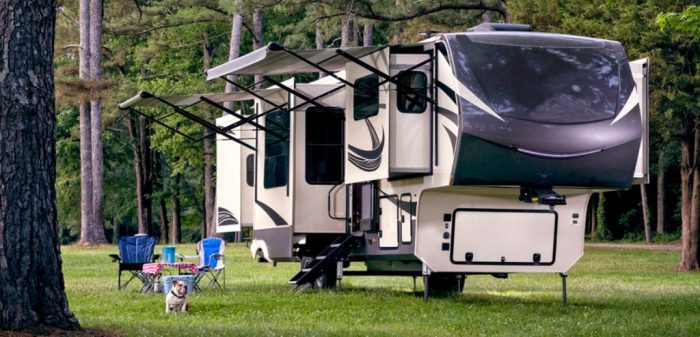
The open road beckons, promising adventure and freedom in your RV. But before you embark on your journey, securing the right RV insurance quote is crucial. This guide navigates the complexities of RV insurance, empowering you to make informed decisions and find the best coverage for your needs and budget. We’ll explore factors influencing costs, different coverage options, and strategies for obtaining competitive quotes, ensuring your peace of mind on every mile.
From understanding policy exclusions and comparing providers to deciphering quote details and calculating annual costs, we provide a clear and concise roadmap. We’ll even delve into the advantages and disadvantages of bundling your RV insurance with other policies, offering real-world examples to illustrate the importance of careful consideration.
Understanding RV Insurance Quotes

Obtaining an accurate RV insurance quote requires understanding the various factors that influence the final cost. This understanding empowers you to make informed decisions and secure the best possible coverage for your recreational vehicle. The process involves considering your specific needs and comparing offerings from different providers.
Factors Influencing RV Insurance Costs
Several key factors determine the cost of your RV insurance. These factors are considered by insurance companies to assess risk and determine premiums. A higher risk profile generally translates to a higher premium.
- RV Type and Value: The type of RV (Class A, B, or C motorhome, travel trailer, fifth wheel, etc.) significantly impacts the cost. Larger, more expensive RVs typically command higher premiums due to increased repair costs and potential for greater damage.
- Coverage Level: Comprehensive coverage, which includes collision and comprehensive protection, will be more expensive than liability-only coverage. The level of coverage you choose directly impacts your premium.
- Deductible Amount: A higher deductible will result in lower premiums. Conversely, a lower deductible will lead to higher premiums. This represents the amount you pay out-of-pocket before your insurance coverage kicks in.
- Driving History and Age: Your driving record and age are crucial factors. A history of accidents or traffic violations will likely increase your premiums. Younger drivers, statistically, are considered higher risk.
- Location: Your location plays a significant role. Areas with higher rates of theft or accidents will generally result in higher premiums. This is due to the increased risk of claims in those regions.
- Usage: How frequently you use your RV and where you store it also influences the cost. RVs used frequently and stored outdoors might have higher premiums compared to those used less often and stored in a secure location.
Types of RV Insurance Coverage
Understanding the different types of coverage available is essential for choosing the right policy. Each type offers a different level of protection, with varying premiums to match.
- Liability Coverage: This covers damages or injuries you cause to others while operating your RV. It’s typically legally required and protects you against lawsuits.
- Collision Coverage: This covers damage to your RV caused by a collision with another vehicle or object.
- Comprehensive Coverage: This covers damage to your RV from events other than collisions, such as fire, theft, vandalism, or weather damage.
- Uninsured/Underinsured Motorist Coverage: This protects you if you’re involved in an accident with an uninsured or underinsured driver.
- Personal Injury Protection (PIP): This covers medical expenses and lost wages for you and your passengers, regardless of fault.
Common Policy Exclusions
It’s important to be aware of what your RV insurance policy typically *does not* cover. Understanding these exclusions helps avoid unexpected costs in the event of a claim.
- Wear and Tear: Normal wear and tear on your RV is generally not covered.
- Mechanical Breakdown: Failures due to mechanical issues are usually not covered under standard RV insurance policies. Separate mechanical breakdown insurance is often available.
- Flood Damage (in most cases): While some policies might offer flood coverage as an add-on, it’s not standard.
- Damage from Neglect: Failure to properly maintain your RV can result in claims being denied.
Comparison of Insurance Providers and Offerings
Different insurance providers offer varying levels of coverage and pricing. Comparing quotes from multiple providers is crucial to finding the best value for your needs. Factors such as discounts, customer service reputation, and claims handling processes should be considered when making your decision. For example, some companies may specialize in RV insurance, offering more tailored coverage options and potentially lower premiums for specific RV types. Others may offer broader coverage but at a higher price point. Direct comparison of quotes from at least three different providers is recommended.
Deciphering RV Insurance Quote Details

Understanding the specifics of your RV insurance quote is crucial for making an informed decision. This section will break down key terms, explore potential cost-saving strategies, and illustrate how to calculate your total annual insurance cost. This information will empower you to choose the coverage that best suits your needs and budget.
Key Terms Explained
RV insurance quotes often contain specialized terminology. Familiarizing yourself with these terms ensures you understand the extent of your coverage. For example, “Actual Cash Value (ACV)” refers to the current market value of your RV, minus depreciation. This contrasts with “Replacement Cost Value,” which covers the cost of replacing your RV with a new one of similar kind and quality, regardless of depreciation. “Liability coverage” protects you financially if you cause an accident resulting in injury or property damage to others. “Uninsured/Underinsured Motorist coverage” protects you if you’re involved in an accident with an uninsured or underinsured driver. Comprehensive coverage protects against damage from events such as fire, theft, or vandalism, while collision coverage covers damage from accidents. Deductibles represent the amount you pay out-of-pocket before your insurance coverage kicks in.
Potential Cost Savings
Several strategies can help lower your RV insurance premiums. Increasing your deductible can significantly reduce your premiums, though it means you’ll pay more out-of-pocket in the event of a claim. Maintaining a good driving record and completing a defensive driving course can also lead to lower rates. Storing your RV in a secure location, such as a covered storage facility, can also demonstrate lower risk to the insurer. Bundling your RV insurance with other policies, like homeowners or auto insurance, from the same company often results in discounts. Finally, carefully comparing quotes from multiple insurers is essential to securing the most competitive rates.
Comparison of Premium Costs for Different Coverage Levels
The following table illustrates how premium costs can vary based on the level of coverage chosen. These are illustrative examples and actual costs will vary based on factors such as your RV’s value, location, and driving history.
| Coverage Level | Liability ($100,000/$300,000) | Collision | Comprehensive | Annual Premium (Example) |
|---|---|---|---|---|
| Basic | Included | No | No | $500 |
| Standard | Included | Yes | No | $750 |
| Comprehensive | Included | Yes | Yes | $1200 |
| Premium | Included ($500,000/$1,000,000) | Yes | Yes | $1500 |
Calculating Total Annual Cost
Calculating your total annual cost is straightforward. It involves adding any applicable additional fees or surcharges to your base premium. For example:
Total Annual Cost = Base Premium + Additional Fees (e.g., roadside assistance, personal effects coverage)
Let’s say your base premium is $750, and you add roadside assistance for $50 and personal effects coverage for $75. Your total annual cost would be:
$750 + $50 + $75 = $875
Closure

Choosing the right RV insurance is a significant step in protecting your investment and ensuring worry-free travels. By understanding the factors influencing costs, comparing various providers and coverage options, and leveraging the tips and strategies Artikeld in this guide, you can confidently secure a policy that provides comprehensive protection without breaking the bank. Remember, a well-informed decision today safeguards your adventures tomorrow.
User Queries
What is the difference between liability and comprehensive RV insurance?
Liability coverage protects you against financial responsibility for accidents you cause, while comprehensive coverage protects your RV from damage due to events like theft, fire, or hail.
How does my RV’s age and value affect my insurance quote?
Older RVs generally cost less to insure, but the coverage might be less extensive. The value of your RV directly impacts the premium, as insurers base coverage on replacement cost.
Can I get discounts on my RV insurance?
Yes, many insurers offer discounts for factors like safe driving records, multiple policy bundling, and affiliations with RV clubs.
What is a deductible and how does it impact my claim?
A deductible is the amount you pay out-of-pocket before your insurance coverage kicks in. A higher deductible typically leads to lower premiums.
What documents do I need to get an accurate RV insurance quote?
You’ll typically need your RV’s VIN, make, model, year, and value, along with your driver’s license and address information.